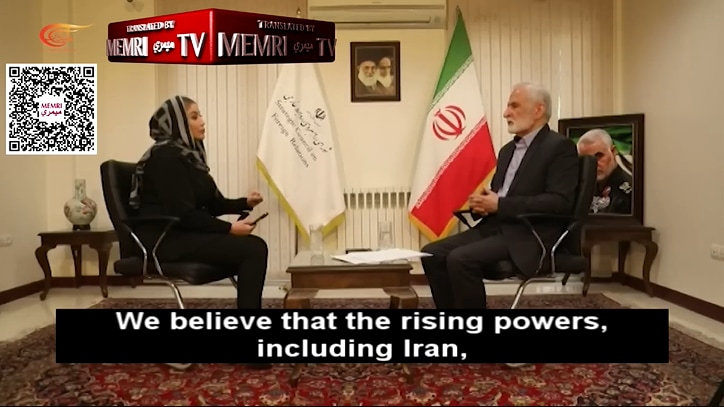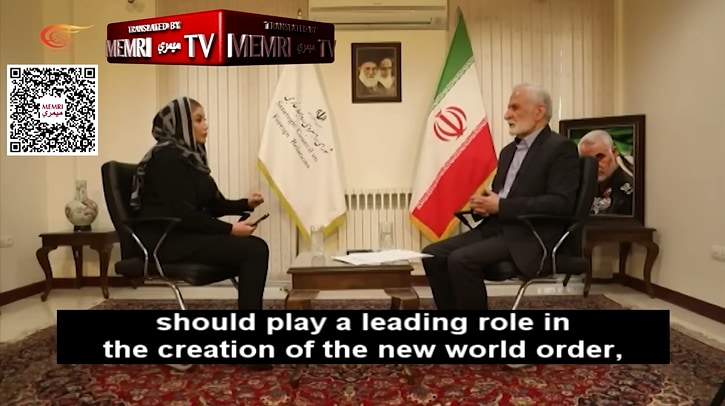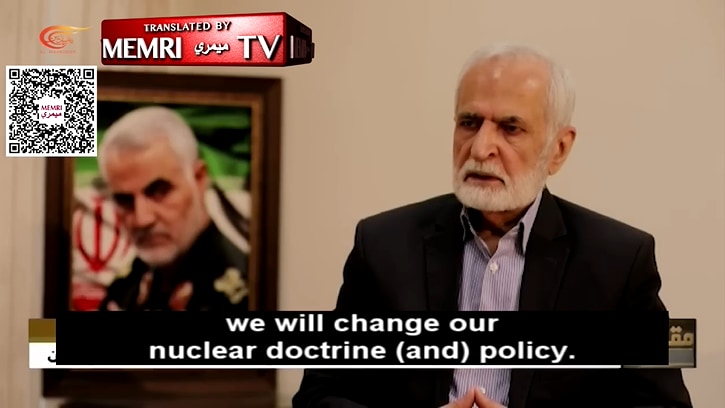
Kamal Kharrazi, an advisor to Iran’s Supreme Leader Ali Khamenei and head of the Strategic Council on Foreign Affairs, suggested in a November 1, 2024, interview with Mayadeen TV (Lebanon) that Iran might expand the range of its ballistic missiles and consider changes to its nuclear doctrine. He stated that when Western European countries do not address Iran’s concerns—especially regarding its sovereignty and territorial integrity—there is no reason for Iran to consider their concerns. Kharrazi remarked that if Iran “faces an existential threat,” it would modify its nuclear doctrine, asserting that Iran has the technical capability to develop nuclear weapons, with Khamenei’s fatwa being the only barrier to such actions.
He also expressed that China, Russia, and Iran should take a leading role in establishing a new world order that would be more democratic than one dominated by the West. Kharrazi indicated that while Iran is prepared for war, it does not seek to escalate it, citing Iran’s display of deterrence during its October 1 ballistic missile attack on Israel. He noted that it is now up to Israel to decide whether to continue the conflict, stating that Israel’s October 26 retaliatory strike was not “on par” with the Iranian missile attack.
Kamal Kharrazi has previously served as Iran’s foreign minister and as the ambassador to the United Nations.
Kamal Kharrazi: "What the Israelis did in response to our missile attack, in which we fired 200 missiles against the Israeli entity, was not on par [with our attack], to tell you the truth. Naturally, the Iranian air-defense systems confronted them, and this caused serious criticism within the [Israeli] entity, because they had expected a more significant Israeli measure. Therefore, it is clear that what they did was less than expected, compared to the attack we carried out against them."
[...]
Interviewer: "Is Iran preparing today for Operation True Promise III?"
Kharrazi: "Yes. Absolutely. The Islamic Republic of Iran will respond to the Israeli aggression against our country, at the appropriate time and in the appropriate manner.



[...]
"We are not ready for war, but we do not want to expand it. At the moment, we proved our deterrence capabilities by the attacks we carried out against the Israeli entity, in Operation True Promise II. Therefore, it is up to the Israelis today. If they want to continue, it is natural for us to respond.
[...]
"Russia and China are striving to establish a new world order, in order to be released from Western hegemony and control, and we share this approach with them. We believe that the rising powers, including Iran, should play a leading role in the creation of the new world order, so that the world will be managed in a more democratic way, instead of being controlled by the West, in the economic and political sense.


[...]
"If Iran faces an existential threat, we will change our nuclear doctrine [and] policy. This is still on the table. We have the technical capabilities to manufacture nuclear weapons. We have no problem in this sense. The fatwa by the Leader of the Revolution is the only thing that prevents this. The same is true of the missiles that need to carry these weapons to their designated targets. Our missile capabilities have become clear to all. Everybody believes in them. We have proved this in our operations, but the issue on the agenda right now is the range of those missiles. So far, we have been taking into consideration the concerns of the Western countries in Europe, but when they do not take into consideration our own concerns, especially with regard to Iran's sovereignty and territorial integrity, we have no reason left after today to take their concerns into consideration. Therefore, it is possible that the range of Iranian missile will be extended."















